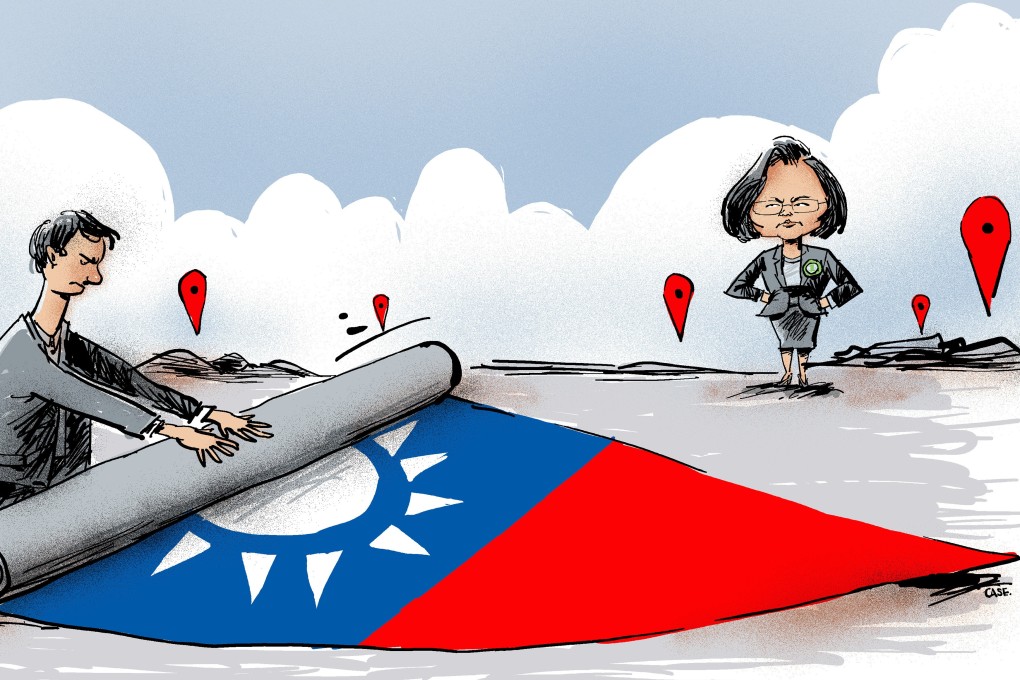Advertisement
Opinion | China’s salvo at Taiwan’s economy may or may not hit home, but a travel curb is just the start
- Beijing’s ban on solo travel visas to Taiwan is aimed at hurting the island’s economy and in turn damaging President Tsai Ing-wen’s re-election bid
- Taiwanese voters are being pushed to decide which is more important: politics or economics
Reading Time:4 minutes
Why you can trust SCMP

Is China’s ban on solo travellers to Taiwan part of a plan to “interfere” with the island’s upcoming presidential and legislative elections? For incumbent Taiwanese President Tsai Ing-wen, how will the travel ban play into her narrative of a bullying China?
Advertisement
With its abrupt, terse announcement on July 31, China’s Ministry of Culture and Tourism lit a political firestorm in Taiwan. In response, Li Mingli, the spokeswoman of Tsai’s independence-leaning Democratic Progressive Party (DPP), said that cross-strait tourism should not fall victim to the old trick of “coercing politics by economic means”.
“They [mainlanders] should be allowed to join more and more travellers from around the world in experiencing a country where freedom, openness & tolerance are the order of the day,” tweeted Taiwanese Foreign Minister Joseph Wu, adding: “What’s to fear?”
Beijing’s move is meant to impair Taiwan’s economy, said a China Daily editorial, putting the blame squarely on the DPP and adding that voters should think hard about “whether it is worthwhile to continue to be bound with a secessionist ‘leader’ on the same ghost ship for another four years”.
Hu Xijin, editor in chief of Global Times, another Beijing government mouthpiece, wrote that Tsai's government has “trampled on cross-strait relations for a considerable time, constantly strengthening its opposition stance against the mainland, and actively acted as a bargaining chip for the United States to suppress mainland China”. Hu asked: “Should tourism be a weapon? On the surface of it, it shouldn’t be. By no means had China ever publicly imposed ‘tourism sanctions’.”
Advertisement

Advertisement
